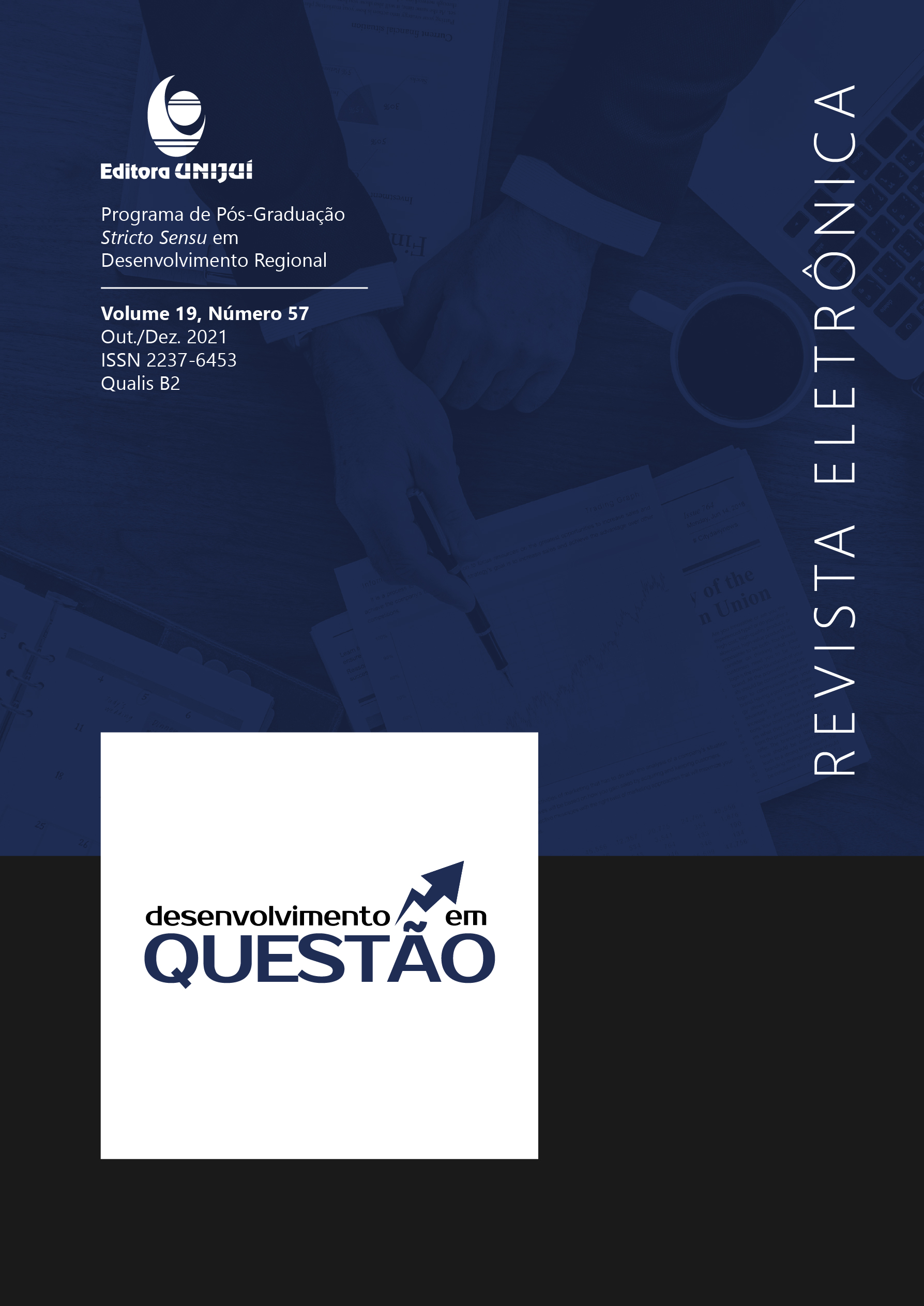Desenvolvimento e Políticas Sociais: Uma Análise Comparativa dos Indicadores em Minas Gerais (2000-2010)
DEVELOPMENT AND SOCIAL POLICIES: A COMPARATIVE ANALYSIS OF INDICATORS IN MINAS GERAIS (2000-2010)
DOI :
https://doi.org/10.21527/2237-6453.2021.57.9902Mots-clés :
Desenvolvimento. Bem-Estar. Saúde. Educação. Aspectos Econômicos.Résumé
Este artigo aborda o tema do desenvolvimento no que se refere à urgência de suplantar o conceito como sinônimo de crescimento, para superar os agravamentos dos problemas advindos dessa concepção. O objetivo foi verificar se os investimentos em políticas sociais provocaram mudanças no bem-estar social dos municípios mineiros entre 2000 e 2010. Através do software SPSS e com base nos dados obtidos pelo Instituto Brasileiro de Geografia e Estatística (IBGE) e no Atlas do Desenvolvimento Humano, foram realizadas análises para os 853 municípios do Estado de Minas Gerais, através do Índice de Bem-Estar Social (IBES), composto por sub índices (saúde e saneamento, educação, e aspectos econômicos). O referencial teórico baseou-se nas discussões sobre desenvolvimento social e sustentável (VEIGA, 2001; SACHS, 2004, 2008), políticas públicas sociais (SERAFIM; DIAS, 2012; CASTRO; OLIVEIRA, 2014; DOWBOR, 2018) e IDH (GUIMARÃES; FEICHAS, 2009). A metodologia dividiu-se em duas etapas. Os resultados demonstram que os gastos em saúde e saneamento, habitação e previdência social foram os que tiveram maior impacto sobre o IBES, demonstrando que investimentos governamentais geram mudanças significativas para a população.Os resultados encontrados reforçam as discussões acerca do papel do desenvolvimento, que deve corresponder à expansão das potencialidades humanas e não apenas de bens de consumo (VEIGA, 2001) e deve ser visto como um processo que reduz as distâncias sociais que separam as diferentes camadas da população (SACHS, 2004).
Téléchargements
Publié-e
Comment citer
Numéro
Rubrique
Licence
Ao publicar na Revista Desenvolvimento em Questão, os autores concordam com os seguintes termos:
Os trabalhos seguem a licença Creative Commons Atribuição 4.0 Internacional (CC BY 4.0), que permite:
Compartilhar — copiar e redistribuir o material em qualquer meio ou formato;
Adaptar — remixar, transformar e criar a partir do material para qualquer fim, inclusive comercial.
Essas permissões são irrevogáveis, desde que respeitados os seguintes termos:
Atribuição — Atribuição — os autores devem ser devidamente creditados, com link para a licença e indicação de eventuais alterações realizadas.
Sem restrições adicionais — não podem ser aplicadas condições legais ou tecnológicas que restrinjam o uso permitido pela licença.
Avisos:
A licença não se aplica a elementos em domínio público ou cobertos por exceções legais.
A licença não garante todos os direitos necessários para usos específicos (ex.: direitos de imagem, privacidade ou morais).
A revista não se responsabiliza pelas opiniões expressas nos artigos, que são de exclusiva responsabilidade dos autores. O Editor, com o apoio do Comitê Editorial, reserva-se o direito de sugerir ou solicitar modificações quando necessário.
Somente serão aceitos artigos científicos originais, com resultados de pesquisas de interesse que não tenham sido publicados nem submetidos simultaneamente a outro periódico com o mesmo objetivo.
A menção a marcas comerciais ou produtos específicos destina-se apenas à identificação, sem qualquer vínculo promocional por parte dos autores ou da revista.
Contrato de Licença (para artigos publicados a partir de 2025): Os autores mantêm os direitos autorais sobre seu artigo, e concedem a Revista Desenvolvimento em Questão o direito de primeira publicação.











